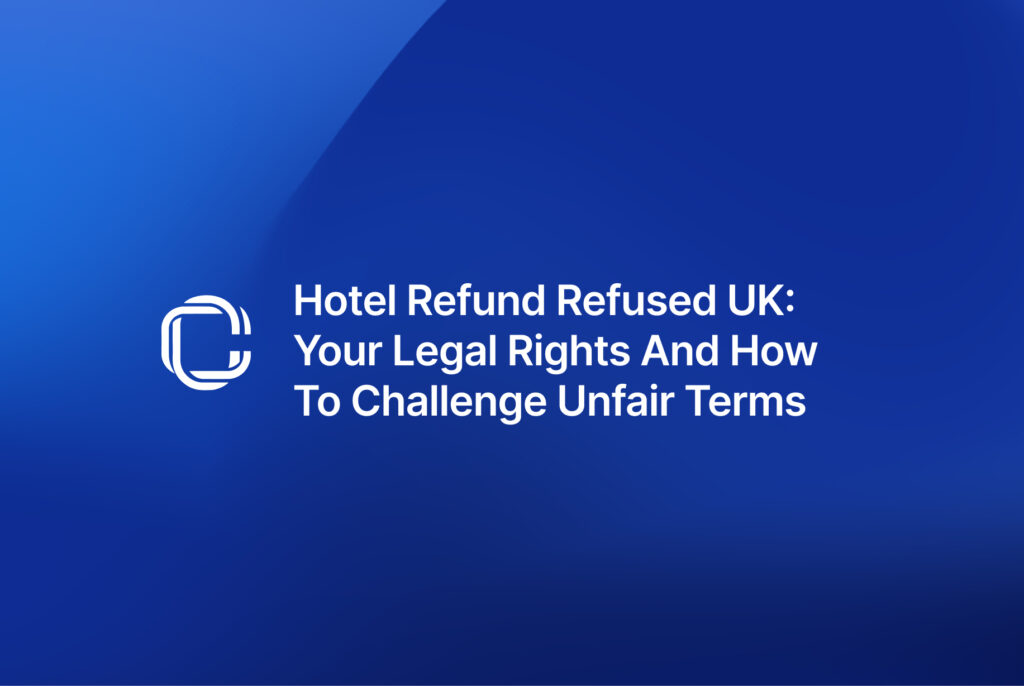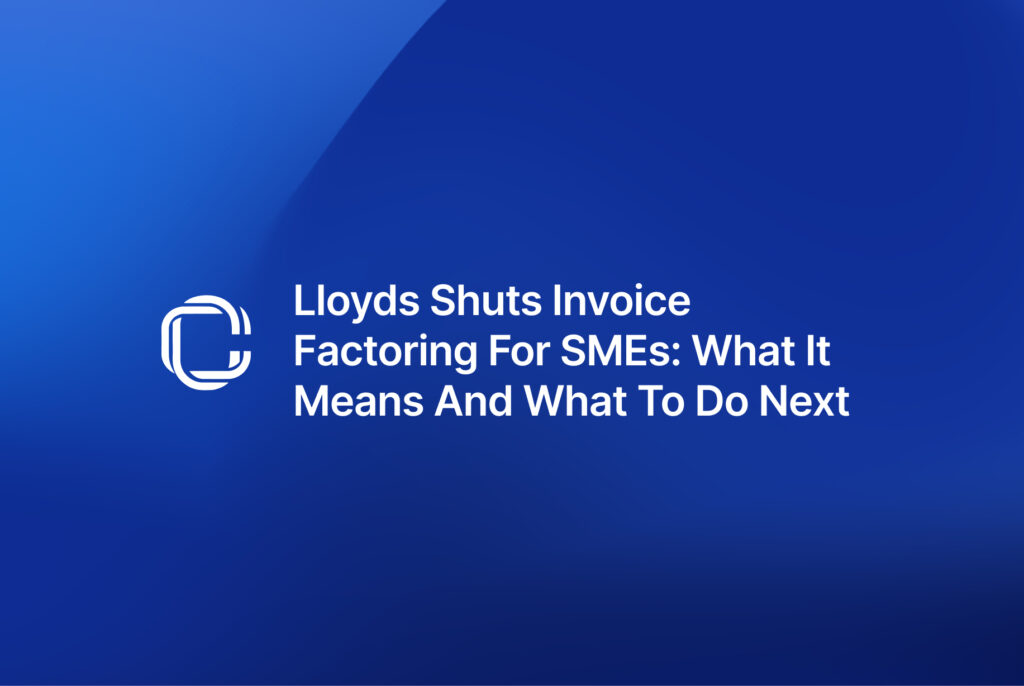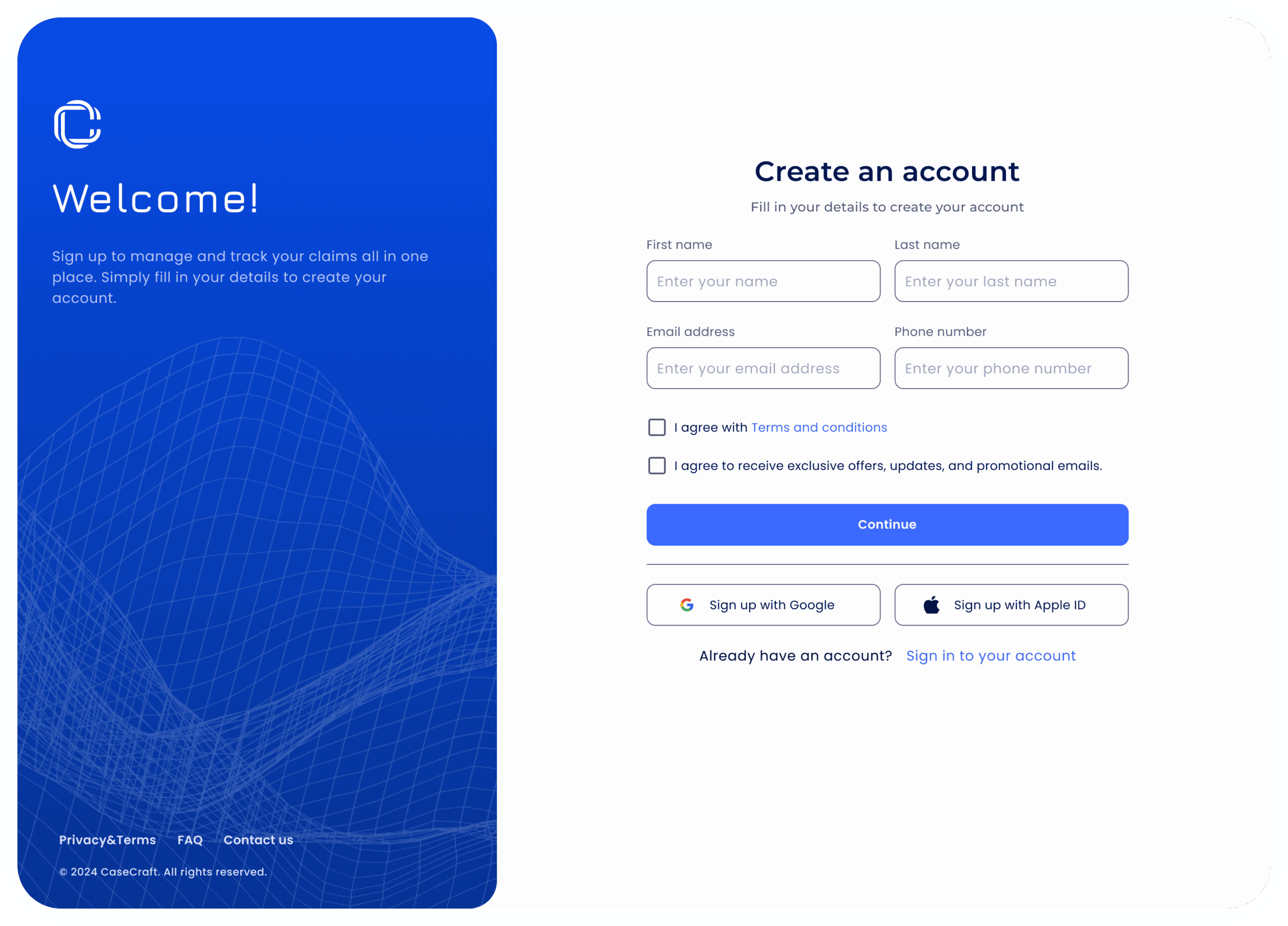Find out if you can claim for emotional distress or time lost in the UK small claims. What’s compensable, what’s not, and what to do instead.
In England and Wales, the small‑claims track exists to resolve straightforward disputes worth up to £10,000. You can claim for financial loss (like unpaid invoices, faulty services, or lost deposits). Emotional distress on its own is rarely compensable under the UK law of emotional distress compensation. Still, limited compensation may be awarded where distress is a foreseeable consequence of a breach of contract (for instance, a ruined holiday), or following data‑protection breaches. Claims for management time or general inconvenience are not normally allowed; courts treat self‑representation as part of the process and only award modest costs such as lost earnings for court attendance. If you’ve suffered stress without financial loss, it may be better to complain to an ombudsman or explore other legal avenues. CaseCraft.AI can guide you through valid small claims, organise your evidence and file the correct forms online for a £15 setup fee and 10% success fee.
Introduction
You’ve been treated unfairly, stressed, and your time has been wasted, but can you actually claim for that in small claims court? It’s a question many people in England and Wales grapple with when a dispute leaves them feeling angry, exhausted or anxious. Small claims courts are designed to be accessible, cases involve amounts below £10,000, and often relate to unpaid invoices, faulty goods or poor service. They’re not a forum for emotional harm: the rules focus on financial loss and tangible damages. Yet life isn’t always neat. What happens if stress and inconvenience are significant parts of your experience? Do you have any recourse for emotional distress or wasted time?
This guide explores what the UK small‑claims system covers and, crucially, what it doesn’t. We examine when emotional distress might be recognised as part of a breach of contract, how courts treat claims for inconvenience or wasted time, and alternatives when you can’t claim compensation through small claims. And if your dispute involves unpaid money or a breach of contract stress, we’ll show you how CaseCraft.AI helps you prepare and file your claim online, without the stress.
What Small Claims Court Covers (and What It Doesn’t)
Purpose of the Small‑Claims Track
Small claims are intended for straightforward civil disputes with lower values. Citizens Advice notes that small claims are “for simple cases that don’t involve large amounts of money or complicated issues”. Typical examples include:
- Faulty products or poor service (e.g., a broken appliance or shoddy building work).
- Refund disputes, such as goods or services not delivered.
- Unpaid invoices for work done.
- Deposit disputes with landlords.
- Minor injury claims (often related to road accidents or property damage).
The jurisdictional limit is £10,000, and the process is designed to be informal; you don’t usually need a solicitor and court fees are relatively modest. As a result, non‑financial losses like emotional distress or inconvenience are generally outside the scope of small claims unless they accompany actual financial loss.
What Small Claims Do Not Cover
The court’s focus on financial disputes means there are limits to what you can claim:
- Pure emotional distress: With rare exceptions, you cannot claim solely for upset, anxiety, stress or hurt feelings in a small claim.
- Management time or “time wasted”: Courts typically treat the effort required to prepare a case as part of the process. Loss of earnings for attending court can sometimes be recovered, but compensation for time spent preparing or pursuing the claim is not normally awarded.
- Punitive damages: UK civil courts aim to compensate, not punish. Damages that exceed actual loss are rarely awarded in contract disputes.
- Personal injury claims worth more than £10,000: These belong in the fast or multi‑track, not the small‑claims track.
The essence is that small claims courts are not about feelings; they’re about measurable loss. If your complaint is primarily emotional, you may need to explore alternative remedies such as personal injury claims or ombudsman schemes.
When Emotional Distress May Be Considered
Although the general rule is that contract‑breachers are not liable for distress or anxiety, the courts recognise exceptions. Damages for stress or anxiety can be awarded when distress is a foreseeable consequence of a breached duty. Below are situations where emotional harm may be compensable in a small‑claims context.
Breach of Contract With Emotional Impact
A landmark case, Jarvis v Swans Tours Ltd, illustrates the exception. In this 1973 Court of Appeal decision, a holiday company failed to provide the promised entertainment (no parties, poor facilities), leaving the claimant with disappointment and frustration. Because the contract’s very purpose was pleasure and relaxation, the court awarded damages for mental distress. This case established that where a contract is intended to provide enjoyment, compensation may extend to non‑pecuniary damages.
Other examples include:
- Weddings or special events: If a contract for wedding services goes wrong, damages may include compensation for distress because the aim is happiness and celebration. However, such claims often exceed the small‑claims limit.
- Holidays and leisure: As in Jarvis, holiday packages or leisure experiences that fail to deliver promised enjoyment may justify compensation for loss of enjoyment, albeit typically modest. Evidence such as brochures, correspondence and photos will help show what was promised and how the experience fell short.
Employment or Workplace Issues
Stress caused by unpaid wages, withheld bonuses or harassment might produce real financial loss and emotional distress. But these disputes typically belong in an Employment Tribunal, not small claims. For example, if an employer fails to pay wages, you could claim the unpaid amount through small claims, but compensation for stress would not be awarded; claims for harassment or discrimination should be taken to the tribunal. CaseCraft.AI provides tools for unpaid wage claims under its money‑claim categories (see the withheld bonus internal link). For workplace bullying or health‑related stress, consult a specialist employment solicitor.
Data Protection Breaches (GDPR Distress Claims)
Under data‑protection law, you may be able to claim compensation for distress without financial loss. In the Vidal‑Hall v Google Inc case, the Court of Appeal held that individuals can claim for distress under the Data Protection Act 2018 and UK GDPR even if they suffer no financial loss. This ruling means that emotional distress, including consumer emotional distress, caused by the misuse of personal data can attract damages. Such claims are usually heard in the County Court and may sometimes fall within the small‑claims limit. If your data‑breach case involves relatively small sums, CaseCraft.AI can help frame the claim as a breach of contract or negligence, but for complex data‑protection matters, you should seek specialised advice.
Other Exceptional Situations
Courts may award modest damages for mental distress when:
- The breach causes physical discomfort or inconvenience that is directly linked to mental suffering, for example, being left without heating in rented accommodation. Compensation for inconvenience, stress and extra heating costs may be included when landlords fail to repair.
- There is a duty to provide peace of mind. In Watts v Morrow, Bingham LJ stated that when the object of a contract is “pleasure, relaxation, peace of mind or freedom from molestation”, damages for distress may be awarded.
- Statute provides for distress damages, such as certain consumer credit or personal data situations.
Even in these exceptions, awards tend to be modest and are tied to the breach. They do not compensate for general feelings of annoyance or for litigation stress.
Can You Claim for “Time Lost” or “Inconvenience”?
Time is valuable, but the small‑claims system doesn’t usually compensate for it. Two points are key:
- No compensation for time wasted in the UK preparing your case. Self‑representation is considered part of the process; the court assumes litigants spend time preparing documents and correspondence.
- Limited recovery of costs. Under the Civil Procedure Rules, parties on the small‑claims track generally cannot recover legal costs or a fee for management time. An exception is loss of earnings for attending the hearing, typically capped. The Access to Justice Foundation notes that litigants can claim around £19 per hour for time spent on their case only in certain civil litigation contexts, but courts will examine whether the cost is reasonable and directly linked to the litigation.
Example: Delayed Repair Claim
Suppose your boiler breaks and your landlord fails to repair it for two weeks. You pay for alternative heating and take time off work to chase the landlord. In a small claim, you could recover the cost of replacement heating and possibly some expenses (e.g., additional electricity), but you won’t be paid for the frustration or time spent writing emails. If the disrepair caused physical discomfort or impacted health, minor damages for distress may be awarded under the exceptions above.
Example: Faulty Product or Service
If a service provider lets you down (e.g., a photographer misses half the wedding), you can claim a refund plus provable consequential losses. You might receive compensation for a ruined event if the contract’s purpose was enjoyment, again referencing Jarvis. However, courts will not compensate for the stress of lodging the claim or time spent complaining.
Management Time in Business Disputes
Companies sometimes attempt to claim management time spent investigating a breach. Courts may award such time only if there is clear evidence of a quantifiable loss and a direct link to the breach; otherwise, it is treated as part of normal business overhead. In small claims, the threshold for evidence is high, and the sums usually exceed the track’s limit.
When You Cannot Claim for Emotional Distress
Understanding the limits of small claims helps you set realistic expectations. You cannot claim for emotional distress or inconvenience when:
- There is no contractual or statutory duty breached. If someone has simply upset you without breaking a contract or law, there is no basis for compensation.
- The distress is general: annoyance at the other party’s behaviour, time spent preparing the case, or stress of litigation are not compensable.
- The dispute relates to harassment, discrimination or personal injury exceeding £10,000. These require specialised legal actions (e.g., under the Equality Act 2010 or personal injury rules) and often fall under different procedural tracks.
- The claim is for hurt feelings alone. The House of Lords in Farley v Skinner confirmed that damages are generally not recoverable for “vexation or anxiety” or similar mental states. The court emphasised that commercial life assumes “mental fortitude”.
If your situation falls into any of these categories, you should explore alternative remedies rather than using small claims to pursue emotional damages.
Alternatives if You Suffered Emotional Distress
When the small‑claims track isn’t suitable, consider other avenues to address the emotional impact of a dispute.
Complaint to Ombudsman or Regulator
Many industries have ombudsman schemes that can order compensation for distress and inconvenience. The Financial Ombudsman Service states it can award compensation for distress or inconvenience when a firm’s mistake causes more than ordinary annoyance. Other ombudsman bodies include:
- Financial Ombudsman Service for banking, insurance and financial complaints.
- Housing Ombudsman for landlord issues beyond small claims.
- Information Commissioner’s Office (ICO) for data‑protection breaches.
- Legal Ombudsman for complaints about lawyers.
Personal Injury or Harassment Claims
If your distress stems from harassment, discrimination or a psychiatric injury, you may need to bring a personal injury or harassment claim. These actions often exceed £10,000 and can recover damages for pain, suffering and loss of amenity. For example, where a landlord’s persistent harassment causes mental illness, you could sue under the Protection from Harassment Act 1997. In workplace harassment, claims are handled by employment tribunals or the civil courts.
Mediation or Alternative Dispute Resolution (ADR)
Before going to court, try mediation or ADR. Mediation is often cheaper and faster, and parties can negotiate compensation, including for emotional harm, that a court might not award. Many service providers and trade associations offer free or low‑cost dispute‑resolution schemes.
Mental Health Support and Legal Advice
Finally, remember that legal action is not always the best remedy for emotional harm. Talking to a counsellor or mental health professional may address the impact more effectively than litigation. When in doubt, seek advice from a solicitor specialising in your type of claim.
How to Strengthen a Claim That Involves Distress or Inconvenience
Even where emotional harm is not compensable, distress can support your case by illustrating how serious the breach was. Follow these steps to build a robust claim:
Provide Evidence of Financial Impact
Courts decide claims on evidence. Without good evidence, you won’t have a strong claim. Collect:
- Receipts and invoices proving financial loss (repair costs, replacement goods, hotel stays).
- Correspondence documenting promises and failures (emails, letters, text messages).
- Photographs or videos of defective products or property damage.
- Statements from witnesses who observed the issue.
If your case involves physical discomfort (e.g., housing disrepair), keep receipts for extra heating costs or alternative accommodation and note the dates to show the length of inconvenience.
Use Clear, Objective Language
Judges prefer facts over emotion. In your particulars of claim, state what happened, when and how it breached the contract or law. You can mention the distress it caused, but the main focus should be the financial loss or contractual breach. For example: “The boiler failure left me without heating for two weeks, forcing me to purchase electric heaters costing £150; the lack of hot water caused significant inconvenience and upset.” Such phrasing acknowledges distress but ties it to tangible loss.
Mention Distress Briefly
While emotional distress is seldom compensable, including a brief reference can help the judge understand the context. It also signals to the other party that you may seek modest compensation under the exceptions if applicable. Avoid exaggerated language; judges may view hyperbole negatively.
Organise Evidence and Deadlines
Small claims require careful preparation. Keep a timeline of events, attach evidence and track deadlines. Mismanaging your case can lead to delays or dismissal. CaseCraft.AI makes this process easier by generating court‑ready forms, organising evidence and providing reminders. Using such tools reduces stress and ensures your claim meets HMCTS standards.
Common Situations and Compensation
| Situation | Can you claim? | Type of compensation |
| Unpaid invoice causing stress | ❌ No emotional distress, only money owed | Claim the unpaid amount, court fees and possibly interest. |
| Faulty service causing upset (e.g., ruined holiday) | ✅ Sometimes | Refund plus compensation for loss of enjoyment if distress was a foreseeable consequence. |
| Harassment or mental distress claims | ❌ (outside small claims) | Bring an employment tribunal or harassment claim. |
| Data‑protection breach causing anxiety | ✅ | Compensation for distress under the Data Protection Act. |
| Landlord’s delayed repairs are causing inconvenience and extra costs | ✅ Limited | Claim cost of repairs/alternative accommodation; modest damages for inconvenience if linked to discomfort. |
| Time spent preparing small‑claims paperwork | ❌ | No compensation; self‑representation is expected. |
| Management time in a business dispute | ❌ Rarely | Only if quantifiable and directly linked to the breach. |
| Personal injury with psychiatric harm over £10k | ❌ (outside small claims) | Bring a personal injury claim for pain and suffering. |
| Temporary inconvenience due to a minor administrative error | ✅ Small | Ombudsman may award a small sum or an apology. |
Note: This article is for general information only and is not legal advice. It may not cover your specific circumstances. If you need advice on a particular case, speak to a qualified solicitor or adviser.
FAQ: About Emotional Distress and Time Lost in Small Claims
Can I sue for emotional distress in small claims court in the UK?
Generally no. Small claims focus on financial loss; emotional distress alone is not compensable. Only if distress stems from a breach of contract whose purpose was enjoyment or peace of mind (e.g., a ruined holiday) may modest damages be awarded.
Can I claim for inconvenience or wasted time?
Courts rarely award compensation for time spent preparing a claim or general annoyance. You may recover lost earnings for attending court and certain expenses, but management time is usually not compensable.
What’s the difference between distress and financial loss?
Financial loss is a measurable expense, money you’ve paid or income you’ve lost. Distress is emotional; courts recognise it only in limited situations, such as contracts for pleasure or data‑protection breaches.
Are there cases where emotional distress is compensated?
Yes. In Jarvis v Swans Tours, the Court of Appeal awarded damages for disappointment when a holiday fell short. Under the Data Protection Act, you can claim for distress without financial loss following the misuse of personal data. Some ombudsman schemes also award small sums for distress














